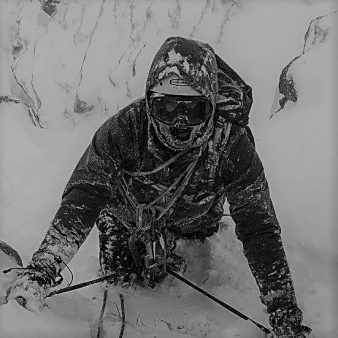Getting the question right: reflections on transgender and “the transgender question”
2 November 2020
I: From “the transgender question” to the transphobia question
There is no such thing as “the transgender question”. No more than there was any such thing as “the Jewish question” in Germany in the 1840s—or 1930s. For Bruno Bauer, and for his interlocutor Karl Marx, the supposed question about Germany’s Jews was how to integrate them, meaning how to make them invisible in civic society, meaning how to stop them being an offence to other Germans. The Nazis had an answer to that question too. But as Marx himself nearly sees at one point in Zur Judenfrage, the problems lie in the question itself.
It’s not “the Jewish question”, it’s “the anti-semitism question”. Likewise it’s not “the transgender question”, it’s “the transphobia question”. In any properly tolerant society there is simply no question or problem at all about the existence within it of a visible minority. (Or a supposedly visible minority; actually, of course, only some Jewish are visibly Jewish, just as only some transgender people are visibly transgender; a point that makes a crucial difference in recent “gate-keeping” controversies.) Tolerance means accepting and protecting each other’s freedom, respecting and valuing our differences (seen and unseen), listening to each other and being ready to think we might learn something by listening. None of this is a problem. None of this is a question.
The problem is not transgender people, it is those who enact hatred and suspicion and prejudice against transgender people. And in the UK today this happens all the time. In my own field, academia, it is mostly insidious—people are usually smart enough not to leave any evidence—but every now and then the mask slips dramatically. Other academics have called me a “cultural Marxist” and a source of ideological contagion, simply because I am a trans woman; I have been studiedly cold-shouldered, ignored, and misgendered at seminars by people who called themselves feminists; I have had a speaking invitation to a conference downgraded to an attendance invitation, the moment the organiser heard that I’d transitioned; I have seen colleagues described as “insane” and “impostors” just for being transgender; I have seen friends’ funding and job applications mysteriously go west, with no good explanation in the offing other than that the applications come from someone who is visibly transgender.
Given that the rampant and toxic transphobia of British media—both left and right—is now causing serious and increasing amounts of distress, hate-crime, self-harm, and suicide among transgender people, you might have thought that what people would mean by “the transgender question” would be how to win the battle against this prejudice. Strikingly, it isn’t. At least for most journalists, apparently the number-one questions about transgender people are which prisons we should be in, which loos we’re allowed, whether we brainwash schoolchildren, and whether we cheat at sport. Now never mind how to answer these questions; we should take a step back from asking them in the first place. Britain’s grimier tabloids have long understood how the insistent repetition of prejudicial questions can be used to frame a minority—just by being asked, and never mind the answers (“Could single mothers give the Royal Family AIDS?”). If we want to defend transgender people from this sort of attack, the first thing we need to do is change the record.
Change the record to what, though? So far from having something called a “gender ideology”, transgender people do not owe it to the world to explain themselves. I can’t be the only trans woman for whom one traumatic memory is trying to tell the truth about myself to a parent—and failing miserably, because I was 4 years old and simply didn’t have the words. Despite that kind of primal trauma, trans people’s right to exist, just like cis people’s right to exist, holds completely independently of our having any convincing story to tell about who we are and why.
All the same, it isn’t uncommon that other people, with the best will in the world, simply don’t get transgender. So it can’t hurt to raise the general level of understanding a bit. Nor can it hurt for trans women like me to try and get a better understanding of the problems that preoccupy some of the gender-critical feminists with whom we should be allies. In the front rank of these is the problem of male violence.
We live in a society and a culture that is structured and predicated upon the threat of violence against women, and always has been. As far back as Homer, one of the fundamental determinants of the shape of society has been the differential in power between the male body and the female body. Consider for instance this, from Book 1 of the Iliad (1.431-450):
Odysseus came to Chryse with his sacrifice.
Once they were in the deep harbour, then his sailors
took down the sail and stowed it within the black ship,
lowered the mast and rested it neat in its runner,
rowed their craft to the waiting anchorage. 435And there they cast the anchors and made fast;
then disembarked and walked ashore through the surf,
bringing the oxen to be offered to Apollo;
and out of the ship there also stepped Chryseis.
Led to the altar by Odysseus of the wiles, 440back in her father’s hands, she heard him speak:
“Agamemnon lord of men has sent me, Chryses,
to give you back your child, and to sacrifice
a hundred oxen to appease Apollo,
to stop the wide-wept woes he’s brought the Greeks.” 445He spoke and gave her up, and Chryses had back
his daughter, his delight. Swift then for sacrifice
they placed the beasts about the firm-built altar,
with pure hands took the sacred barley up.
And Chryses raised his arms in prayer for them…
Chryseis—Cressida—hears what is being done to her, just as the oxen do; but Chryseis has no more say in it and no more choice about it than those sacrificial beasts. The world she lives in is a world of war and violence; a world of religiously-sanctioned greed and grabbing and the fetishisation of possession and status. This is the patriarchy. The basis of it is the inequality in brute physical power between the (typical) male and (typical) female bodies, and the threat that that implies.
I have not just said that there is in nature such a thing as a distinctive feminine or masculine character type. There isn’t, not in nature. But separating nature from culture is notoriously difficult. And what we tend to get is reversion to the patterns dictated by the forces of the human body. As in this passage from the Iliad, where Chryseis is a piece of mute property, and the transaction that is going on is essentially one between Agamemnon and Achilles, two war-lords, neither of whom is even present.
Homer’s is a world (as Simone Weil so well sees in her famous essay) that is built upon the possibilities for violence that are present in the human body. And I agree with Weil, against Nietzsche, that this vision of the world as a terrible place of violence and oppression, a place where force turns its victim into a thing, is a vision which is to be wept over not (as Nietzsche thought) celebrated.
[U]ne telle accumulation de violences serait froide sans un accent d’ inguérissable amertume qui se fait continuellement sentir, bien qu’ indiqué souvent par un seul mot, souvent même par une coupe de vers, par un rejet. C’ est par là que l’ Iliade est une chose unique, par cette amertume qui procède de la tendresse, et qui s’ étend sur tous les humains, égale comme la clarté du soleil.
And one reason to weep is just this: that our world is like that too.
Picture: Sophie-Grace climbing
- October 2025
- September 2025
- August 2025
- July 2025
- June 2025
- May 2025
- April 2025
- March 2025
- February 2025
- January 2025
- December 2024
- November 2024
- October 2024
- September 2024
- August 2024
- July 2024
- June 2024
- May 2024
- April 2024
- March 2024
- February 2024
- January 2024
- December 2023
- November 2023
- October 2023
- September 2023
- August 2023
- July 2023
- June 2023
- May 2023
- April 2023
- March 2023
- February 2023
- January 2023
- December 2022
- November 2022
- October 2022
- September 2022
- August 2022
- July 2022
- June 2022
- May 2022
- April 2022
- March 2022
- February 2022
- January 2022
- December 2021
- November 2021
- October 2021
- September 2021
- August 2021
- July 2021
- June 2021
- May 2021
- April 2021
- March 2021
- February 2021
- January 2021
- December 2020
- November 2020
- October 2020
- September 2020
- August 2020
- July 2020
- June 2020
- May 2020
- April 2020
- March 2020
- February 2020
- January 2020
- December 2019
- November 2019
- October 2019
- September 2019
- August 2019
- July 2019
- June 2019
- May 2019
- April 2019
- March 2019
- February 2019
- January 2019
- December 2018
- November 2018
- October 2018
- September 2018
- August 2018
- July 2018
- June 2018
- May 2018
- April 2018
- March 2018
- February 2018
- January 2018
- December 2017
- November 2017
- October 2017
- September 2017
- August 2017
- July 2017
- June 2017
- May 2017

